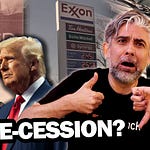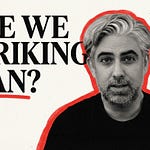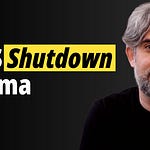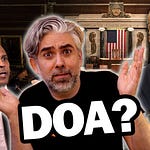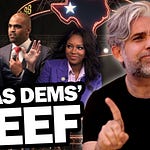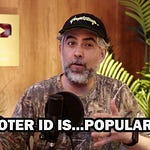In the aftermath of the assassination of Charlie Kirk, I needed to sit down and talk with you — just you and me. This isn’t a guest-heavy episode, there is no news roundup. This is something different. This is something more personal, more direct, and honestly, more painful. I want to talk about what this moment means, why it matters, and what we do next. Because we’re at a crossroads, and that road cuts directly through our online and offline realities in ways we can’t ignore anymore.
Charlie Kirk was shot with a rifle while on stage at Utah Valley University. The shooter is still unidentified, and the motives are still unclear. But there’s no denying what that moment was meant to signal: if you talk like this, we’ll kill you. And while that “we” remains unknown, the message it sends is loud and clear. This wasn’t a private act of violence. This was political. This was a statement. And the target wasn’t just Kirk — it was anyone who might stand where he stood or say what he said.
Kirk wasn’t someone I always agreed with, but I did see what he built. Turning Point USA grew into a major player, replacing many of the institutions that shaped college conservatism before him. He blended the Buckley model of organizing with the showmanship of Limbaugh and became influential not just in youth politics but in the Trump movement itself. His voice mattered. His platforms mattered. And whether or not you liked what he said, it’s impossible to ignore that many young conservatives saw themselves in him.
So much of what’s happened since his death has disturbed me. The edgelords on the internet doing their worst, cracking jokes about the bullet that hit him, pretending he wasn’t a person with a wife and children — that’s not just tasteless, it’s dehumanizing. And when you dehumanize someone in death, you’re justifying violence against the living. It’s not a good look. It’s not principled. It’s cruelty dressed up as politics.
We’ve seen attempts to paint political violence as something that only comes from one side, but that’s not how any of this works. Whether it’s a left-wing shooter or a right-wing pipe bomber, we’ve got to stop turning every horrific act into a team sport. Every time someone uses violence as a form of political speech, it pushes the line further, normalizes the unacceptable, and opens the door for more of it. And that’s the real danger — the escalation, the dehumanization, the cheapening of life itself.
Now look, I understand that people hated Charlie Kirk, and saw him as a cartoon villain solely taking up space on the internet. But if your first instinct when someone is murdered is to dig up their worst take, maybe it’s time to reevaluate what you stand for. Did Kirk say provocative things? Sure. But we’re either going to live in a country where bad takes are met with debate or one where they’re met with bullets. And if it’s the latter, none of us — not me, not you — are safe.
Among those edgelords and the calls for retaliatory violence, though, I saw hope. A YouGov poll found that 78% of Americans think it’s unacceptable to celebrate the death of a public figure, even one they dislike, and only 9% answered in the affirmative. That’s good. That’s a big majority, especially in today’s political climate, and it points to a baseline of decency in this country that hasn’t been completely eroded by the internet’s worst tendencies.
And then there was Cenk Uygur, the founder of The Young Turks and someone who battled Kirk publicly. He posted something beautiful, something real. He talked about sharing a beer with Kirk, about choosing unity over hate. That matters. Because it shows that humanity still exists across the aisle. That you can disagree without celebrating someone’s death. That maybe — just maybe — we can start tending our own gardens before trying to burn someone else’s to the ground.
So, what do we do now? We lead by example. We reject political violence — loudly, clearly, and without exception. We treat each other like people, not caricatures. And we remember that even in a polarized world, the line between democracy and something far darker is thinner than we think. Let’s not cross it. Not now. Not ever.
Chapters
00:00 - Intro
02:42 - Who was Charlie Kirk?
07:40 - Reaction clips
13:09 - Discourse
23:08 - This is different
30:26 - The internet is not real life
37:44 - What now?



